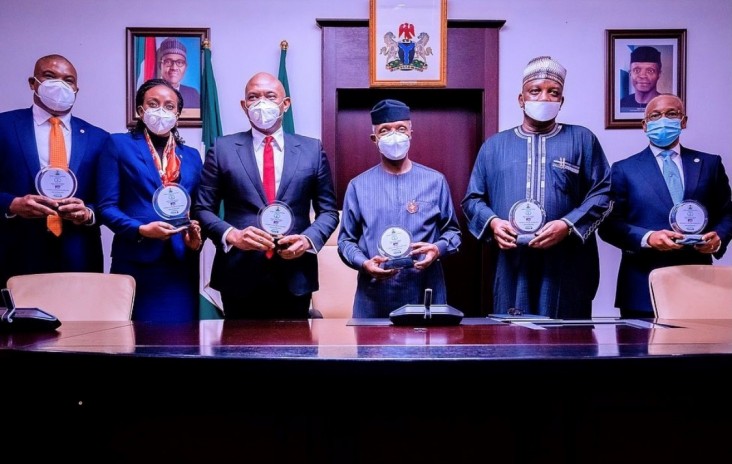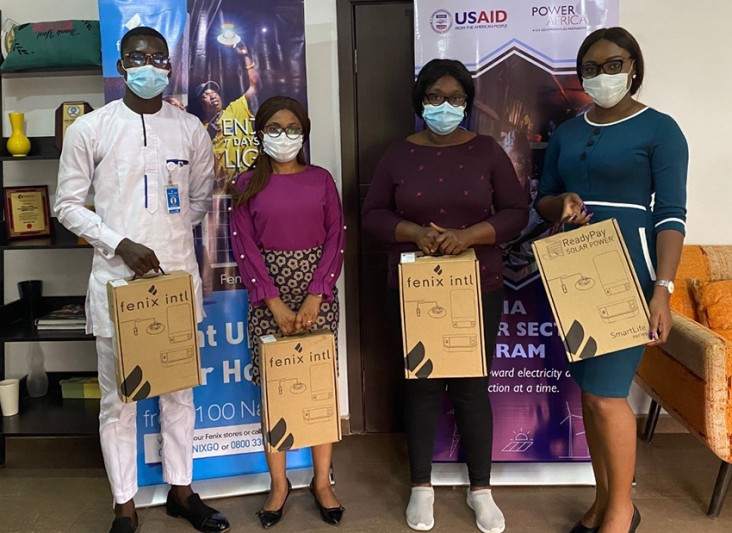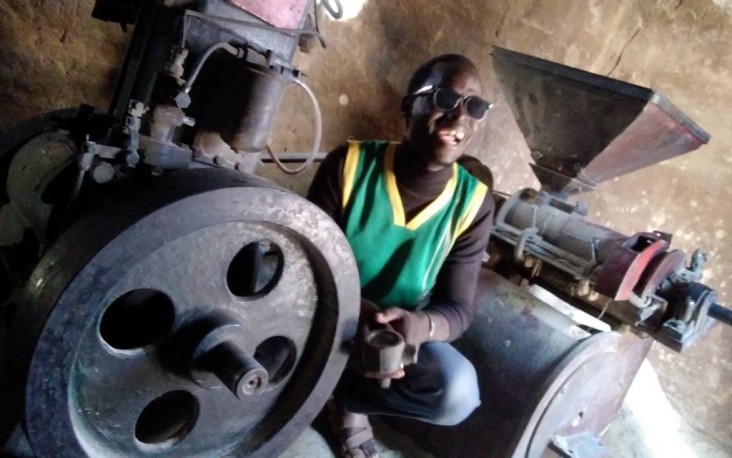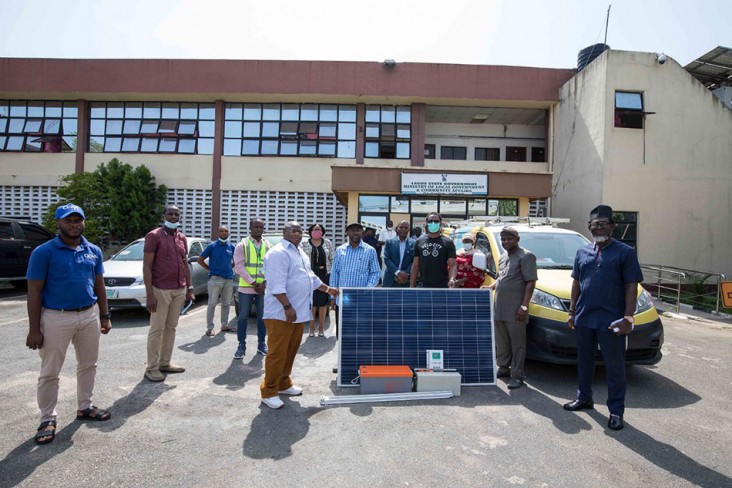- Where We Work
- Africa
- African Union
- Power Africa
- Trade and Investment
- Angola
- Benin
- Botswana
- Burkina Faso
- Burundi
- Cameroon
- Central Africa Regional
- Central African Republic
- Chad
- Côte d'Ivoire
- Democratic Republic of the Congo
- Djibouti
- East Africa Regional
- Eswatini
- Ethiopia
- Ghana
- Guinea
- Kenya
- Lesotho
- Liberia
- Madagascar
- Malawi
- Mali
- Mauritania
- Mozambique
- Namibia
- Niger
- Nigeria
- Republic of the Congo
- Rwanda
- Sahel Regional
- Senegal
- Sierra Leone
- Somalia
- South Africa
- South Sudan
- Southern Africa Regional
- Sudan
- Tanzania
- The Gambia
- Uganda
- West Africa Regional
- Zambia
- Zimbabwe
- Asia
- Europe and Eurasia
- Latin America and the Caribbean
- Middle East
- Mission Directory
Speeches Shim
Nigeria
POWER AFRICA FACT SHEET
NIGERIA ENERGY SECTOR OVERVIEW
Nigeria is the largest economy in sub-Saharan Africa, but limitations in the power sector constrain growth. Nigeria is endowed with large oil, gas, hydro and solar resource, and it already has the potential to generate 12,522 megawatts (MW) of electric power from existing plants, but most days is only able to generate around 4,000 MW, which is insufficient. Nigeria has privatized its distribution companies, so there is a wide range of tariffs.
GENERATION CAPACITY
-
Installed Capacity: 12,522 MW
-
Thermal: 10,142 MW
- Hydro: 2,380 MW
-
- Reached Financial Close: 3,034 MW
- Power Africa 2030 Pipeline: 11,750 MW
CONNECTIONS
-
Current Access Rate: 45%
-
Rural: 36% Urban: 55%
-
- Households without Power: 20 million
- Target: Universal access by 2030
- Power Africa New Off-Grid Connections: 454,432
- Power Africa New Grid Connections: 496,723
INVESTMENT AND ENABLING ENVIRONMENT
Biggest Issues
-
Macroeconomic forces
-
Lack of creditworthy utilities
- Lack of strong, transparent regulator
Power Africa Interventions
-
Loss reduction work with utilities
-
Transaction advisory services
- Partnership with National Association of Regulatory Utility Commissioners
POWER AFRICA’S ENGAGEMENT IN NIGERIA
MW GENERATION
Power Africa assisted the Government of Nigeria with agreements to move the Qua Iboe gas project closer to financial close. In parallel, Power Africa is assisting with agreements on several solar projects that will help Nigeria diversify its energy mix. Power Africa also helped Nigeria’s first private IPP, the Azura Edo Project, reach financial close in 2015, including a $50 million investment by The Overseas Private Investment Corporation (OPIC). The Azura plant became operational in 2018.
CONNECTIONS
Power Africa, through the United States Agency for International Development (USAID) and the U.S. Trade and Development Agency (USTDA) is working to improve commercial operations and reduce losses at five distribution companies: Abuja, Benin, Eko, Ibadan, and Ikeja.
Power Africa is supporting off-grid options as well. With a $15 million OPIC loan, Lumos, Inc. is deploying rooftop solar panel kits to approximately 70,000 residential and small commercial customers in Nigeria, using a lease-to- own business model. In partnership with General Electric, the U.S. African Development Foundation (USADF) and others, Power Africa has awarded nine $100,000 grants to entrepreneurs for innovative, off-grid energy projects in Nigeria.
ENABLING ENVIRONMENT
Power Africa provides support to the Nigeria Electricity Regulatory Commission (NERC) through a partnership with the National Association of Regulatory Utility Commissioners (NARUC). This organization provides guidance on regulatory practices and tariff setting. Power Africa also provided planning support to the Transmission Company of Nigeria (TCN) to try to attract new investment in the transmission network.
SUCCESS STORY
Power Africa is assisting the Ministry of Petroleum Resources to structure and implement a program that will attract competent third-party off-takers to invest in the capture and utilization of gas flares using tested technologies. This work in support of the Nigeria Gas Flares Commercialization Program (NGFCP) will improve access to finance for gas flare projects to achieve quicker financial close through incentives to investors and strengthen capacity of regulatory agencies to monitor and sustain the implementation, as well as subsequent bid rounds.
Firing Up the Afam Power Plants: Power Africa Support Brings $344 Million Power Transaction to Financial Close in Nigeria
The Nigeria Bureau of Public Enterprises engaged Power Africa to provide technical advisory support to evaluate submitted proposals, select a preferred bidder, and ensure that the transaction was a success.
By acting as an independent facilitator and advisor to this transaction, we were able to provide inputs on leading international practice, evaluate the Performance Agreement to ensure that implementation commitments and milestones were accurately captured, and that any potential gaps were highlighted
“Power Africa was instrumental in providing ongoing support to the Bureau for the Afam privatization transaction,” shared Yunana Malo, Director of Energy at the Bureau of Public Enterprises. “The team provided insights, analysis, and knowledge that expedited the transaction to financial close and ensured that the Federal Government of Nigeria received full value from the transaction.”
READ MORE about Power Africa's role in this transaction on our blog
Solar Home Systems Power the Fight Against Gender-Based Violence
In Nigeria, access to reliable electricity is helping gender-based violence response centers and health care centers better serve their communities.
Power Africa worked with two private sector companies -- U.S.-based Fenix International, a subsidiary of Power Africa partner ENGIE, and Greenlight Planet -- to supply 110 solar home system (SHS) units for use in primary health care centers and GBV prevention centers, and for essential workers to use at home.
Agricultural Productive Use Stimulation in Nigeria: Value Chain and Mini-Grid Feasibility Study
To bridge the gap between agriculture and electricity actors in Nigeria, Power Africa conducted a comprehensive study to identify opportunities to electrify agricultural productive uses, how these opportunities can be developed through commercial business models, and strategies to overcome barriers to deployment.
READ MORE and download study on our blog: Reaping the Rewards of Agricultural Electrification
Putting Nigeria’s Vulnerable On The Map: Harnessing Geospatial Data For Covid-19 Relief
The Lagos State Ministry of Energy and Mineral Resources partnered with Power Africa, with support from CrossBoundary, to identify the most vulnerable communities where solar home systems would have the greatest impact, and to develop a plan for equitable distribution of units at the least cost.
READ MORE about how we used 71,658 data points to help Nigeria's most vulnerable on our blog





Comment
Make a general inquiry or suggest an improvement.